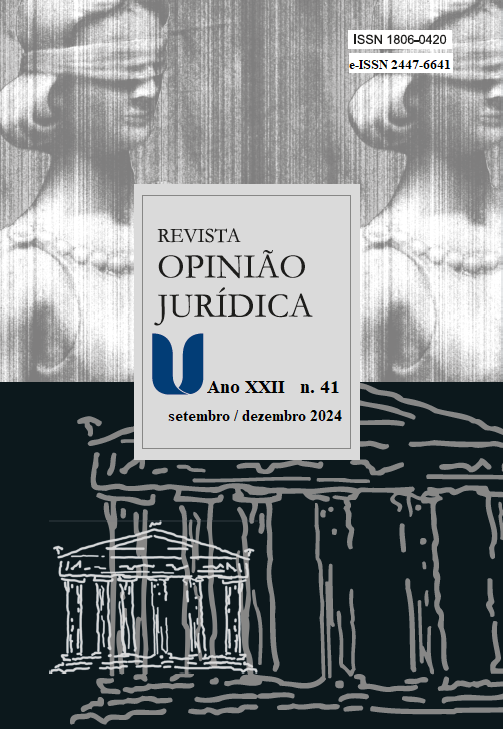The practical reason for collegiality in the Federal Supreme Court and the principles of deliberative democracy
does dialogue matter?
DOI:
https://doi.org/10.12662/2447-6641oj.v22i41.p84-114.2024Keywords:
deliberative democracy, constitutional court, decision-making process, collegiality, dialogueAbstract
Contextualization: The interactive practices of a collegiate body such as the Federal Supreme Court directly affect the quality and legitimacy of the decisions made, with regard to both the epistemology of the institutional arrangements adopted and the quality of knowability of the deliberate content.
Objective: The focus of this article is the role of dialogue and collegiality, as it aims to contribute to reflection on the importance of dialogue in the Federal Supreme Court, whose decisions must reflect the consensus reached by the institution through practical reason, appropriate to the democratic model Brazilian.
Method: This work was based on research in which the opinion of the ministers themselves is exposed regarding the practices of dialogue within the Supreme Court, examined in light of the concept of deliberative democracy, a political model adopted by the Brazilian Constitution of 1988. This is a bibliographical research.
Results: The type of deliberative experience practiced at the Supreme Court implies the undoing of the collegial character of the Institution, which is replaced by the individualistic aspect of the judges, which harms the quality of their judicial decisions, reducing them more to personal opinions, minimizing the expression of the practical rationality of that institution.
Conclusions: The hypothesis is defended that it is necessary to take on the challenge of authentic dialogue as a practical reason for a relevant collective undertaking to reflect an institutional consensus, because this is a fundamental perspective for the legitimacy of the decisions of a Collegiate Court.
Published
How to Cite
Issue
Section
License
Copyright (c) 2024 Revista Opinião Jurídica (Fortaleza)

This work is licensed under a Creative Commons Attribution-NonCommercial-ShareAlike 4.0 International License.
CESSION OF COPYRIGHTS
The submission of articles to analysis for publication on Opinião Jurídica implies the author(s) transfers copyrights to Centro Universitário Christus – UNICHRISTUS for reproduction, publicizing, distribution, printing and publication, according to the Publication Norm 414R, Opin. Jur., Fortaleza, year 12, n. 16, p.1-414, Jan./Dec. 2014, costs to be bore by UNICHRISTUS, in whatever format or means that may or shall exist, in accordance to articles 49 and following of Federal Law 9.610/98.
1. In ceding copyrights, the author(s) agrees to do so in exclusivity, free of charge and for the totality of the work.
2. UNICHRISTUS may make the work, in its entirety or in parts, available for scholarly purposes, without altering its contents, except for small corrections that are deemed necessary.
3. The cession of copyrights is valid in all countries and for versions of the material in its original language or translated into a foreign language.
RESPONSIBILITY FOR THE CONTENT
By submitting an article, the author(s) declare to have sole responsibility for the content of the piece and is(are), therefore, responsible for any judicial or extrajudicial measures referring to it.
1. In case of joint authorship, all authors are considered collectively responsible, except when proved otherwise.



















